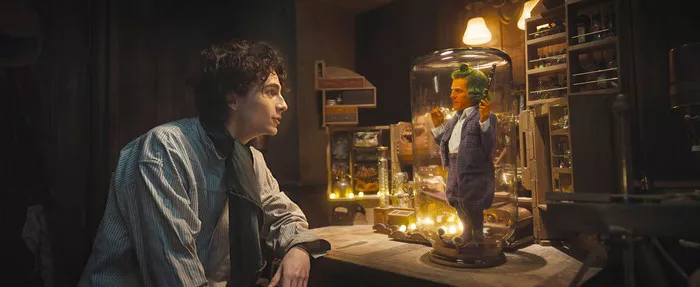The recent announcement of Hugh Grant’s casting as an Oompa-Loompa in the upcoming “Wonka” film has ignited a wave of controversy and criticism within the entertainment industry. While casting choices are often a topic of discussion in Hollywood, this particular debate shines a spotlight on the issue of authentic representation and inclusivity for actors with dwarfism. In this article, we delve into the Wonka casting controversy, exploring the concerns raised by actors with dwarfism and the challenges in striking a balance between avoiding stereotypes and providing opportunities for underrepresented talent.
The Casting Choices in Wonka
The “Wonka” film, which serves as a prequel to the beloved Roald Dahl story “Charlie and the Chocolate Factory,” has raised eyebrows with its casting choices. The decision to cast Hugh Grant as an Oompa-Loompa, a fictional race of small factory workers, has drawn criticism from actors with dwarfism and advocates for authentic representation. Grant’s casting in this role raises questions about whether it perpetuates harmful stereotypes and limits opportunities for actors with dwarfism in the industry. It also highlights the importance of thoughtfully considering casting decisions to avoid unintentional marginalization.
The Exclusion of Actors with Dwarfism
The casting of able-bodied actors in roles that depict characters with dwarfism has been a long-standing issue in Hollywood. This practice often leads to the exclusion of talented actors who could bring authenticity and depth to such roles. Actors with dwarfism have consistently expressed their frustration over the lack of opportunities in the industry and the perpetuation of stereotypes through non-disabled actors portraying characters with dwarfism. The Wonka casting controversy is just one example of a broader issue that demands greater inclusivity and equal representation for all actors, regardless of their physical appearance. It serves as a wake-up call for the entertainment industry to reflect on its responsibility in providing equitable opportunities.
The Importance of Authentic Representation
Authentic representation in film and television is crucial for fostering empathy, understanding, and breaking down stereotypes. When actors with dwarfism are denied the opportunity to portray characters that reflect their own experiences, it sends a message that their stories are not worthy of being told authentically. By providing these actors with opportunities to play diverse roles that go beyond stereotypes, the industry can contribute to a more inclusive and diverse narrative landscape. Authentic representation not only benefits the actors themselves but also enriches the storytelling experience for audiences by offering unique and genuine perspectives.
The Challenge of Striking a Balance
While the need for authentic representation is evident, casting decisions must also take into account various factors, including the film’s creative vision and the practicalities of production. Striking a balance between providing opportunities for actors with dwarfism and maintaining artistic freedom can be challenging. Some argue that casting choices should prioritize actors who can bring authenticity to roles, while others emphasize the importance of open casting calls that consider actors of all backgrounds for a wide range of characters. Navigating this delicate balance requires open communication between filmmakers, casting directors, and advocacy groups to ensure that casting decisions are made thoughtfully and inclusively.
Promoting Inclusivity in Hollywood
To address the casting controversy and foster inclusivity in Hollywood, several steps can be taken. First and foremost, filmmakers and casting directors must actively seek out and consider actors with dwarfism for roles that reflect their lived experiences. Open discussions and collaborations with actors and advocacy groups can lead to a better understanding of the challenges faced by individuals with dwarfism in the industry. Additionally, implementing guidelines and protocols that promote authentic representation and discourage the casting of non-disabled actors in disabled roles can help create a more inclusive environment in Hollywood. Training and education on diversity and inclusion can also play a crucial role in fostering greater awareness and sensitivity among industry professionals.
Conclusion
The Wonka casting controversy serves as a poignant reminder of the ongoing challenges faced by actors with dwarfism and the importance of authentic representation in Hollywood. While the industry has made progress in recent years towards greater inclusivity, there is still much work to be done. By listening to the concerns of actors with dwarfism, collaborating on solutions, and actively seeking out authentic representation, Hollywood can take significant strides towards becoming a more inclusive and diverse creative space for all. Ultimately, it is the responsibility of the entertainment industry to tell stories that reflect the richness and diversity of the human experience, honoring the voices of those who have been marginalized and providing them with the platform they deserve. Through collective efforts, Hollywood can pave the way for a more inclusive future, where actors of all backgrounds are given equal opportunities to shine on the silver screen.
RELEATED READING:
-
Superman Legacy: MCU Element Joins DC Universe Fan Trailer
-
“The Creator”: Story Details and Trailer Analysis
-
DC’s Flash Movie: Lessons Unlearned From a $240 Million Disaster
-
Scream 7: Ghostface’s Return – Release Date, Story & Everything We Know
-
Meg 2: The Trench Surprises Oppenheimer at the Box Office

